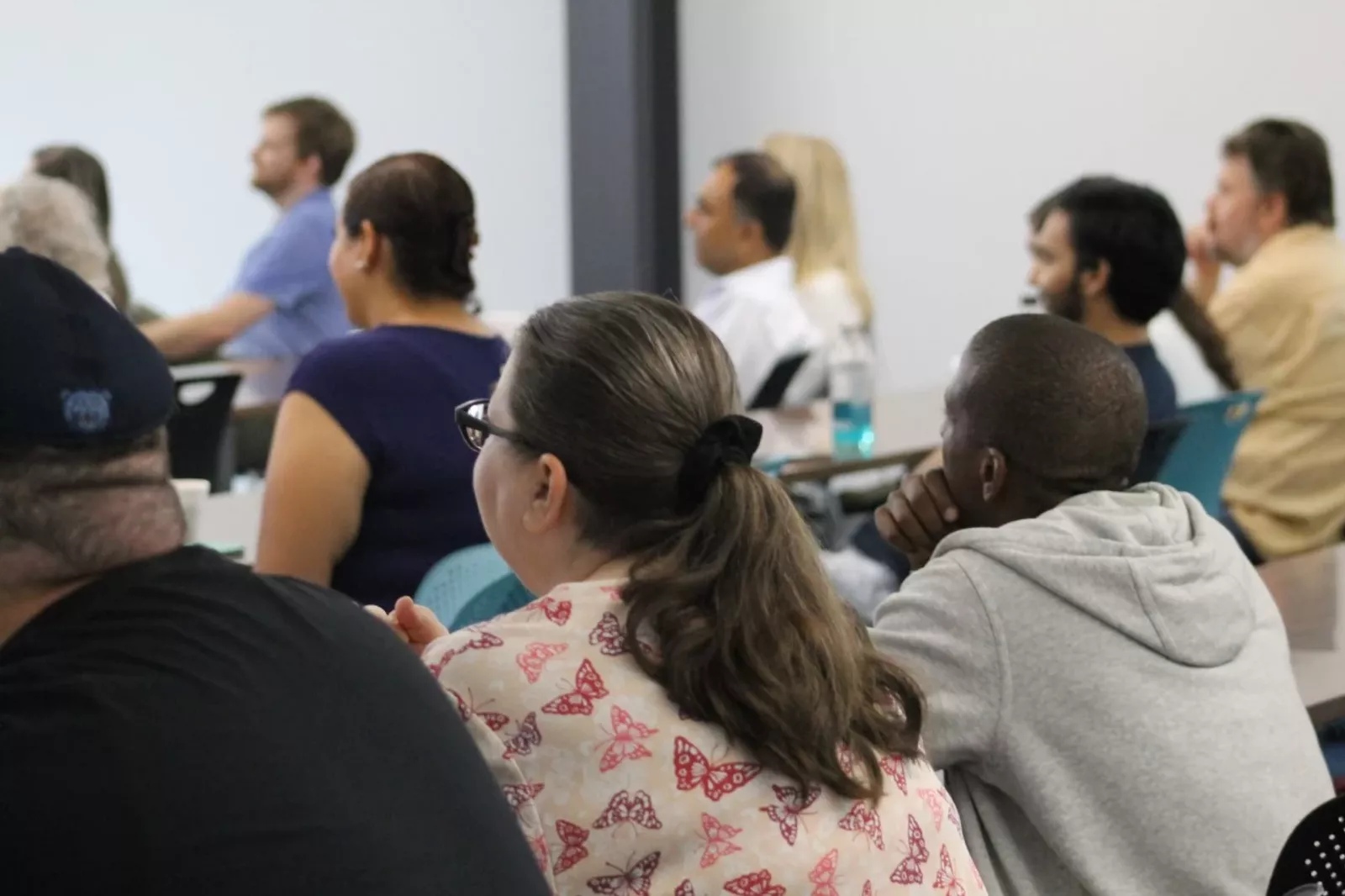An Oasis in the Suburbs: Galveston Bay Oasis
Every Sunday morning, familiar faces walk through the doors of our meeting space at Galveston Bay Oasis. These weekly regulars greet each other and enter into jovial conversation as they work together to set up the coffee, sound equipment, and welcome table. Amidst this bustle of activity a newcomer can slip through almost undetected, perhaps in a purposeful attempt to avoid being in the way of volunteers. This stealthy entrance, purposeful or not, does not last long. Our attendance, while growing, has not passed more than forty, so anyone new will be noticed. At Oasis, we recognize the importance of making sure our newcomers feel welcomed and acknowledged, and so an introduction is made. Among the first few questions our volunteers will ask is something along the lines of “How did you find out about Oasis?”
This question, while genuine, is also a not-very-sly tactic of figuring out how effective our marketing and outreach has been. Did they see the Facebook event? Did we appear in a Google search for “what is a secular community?” Maybe they saw a poster we put up at Starbucks? More often than not, the answer is actually “I went to Houston Oasis last week and someone told me about Galveston Bay Oasis—which is right down the road for me.” Sometimes the most effective marketing is free.
Let’s go back about three years ago to October 2016. Houston Oasis was excited for the new move from Eddie’s Dance Studio near Westheimer to the lovely Leonel Castillo building in Near Northside. It was a centrally located space, perched on the bank of White Oak Bayou overlooking Downtown, and boasted a beautifully bright, windowed interior. Some Oasians from the west side of Houston expressed concerns about the new distance, while those of us from the east side of the city were looking forward to the reduction in drive times.
While I was relieved that trips were no longer taking as long, and looking forward to attending more regularly, I was a little disappointed that most of my Oasis friends who’d stopped attending because of the distance, didn’t start attending again even with the new location. At our Wednesday night Southeast Community Group meetings, I’d see people who I hadn’t seen at the Sunday morning events and I’d ask if they knew about the new location. Often they’d admit that they just didn’t care for the drive into the city anymore. It was hard to blame them. Construction had been ongoing along the Gulf Freeway and most weekends saw lanes shut down, exits blocked off, and confusing detours set up. I was starting to feel like the new location hadn’t really fixed the root of the problem for me either.
Sometimes we joke about The South having “a church on every corner.” In some places, that's only a minor exaggeration. With the exception of some die hard church loyalists (which actually include my mom and stepdad who drive from Clear Lake to the Museum District each Sunday) many people attend a church near, or in, their own neighborhood (like my dad and stepmom who drive a couple minutes to church in Friendswood.) Oasis and other secular communities are obviously not as widely attended as religious services. Even among the growing secular population, secular community as we have experienced it is still pretty foreign. Perhaps if there were more Oasis communities on more corners, that would start to change?
Houston Oasis, and I imagine most other Oasis communities, grew and sustained because they have always had dedicated individuals who didn’t consider it a sacrifice to give most of their Sunday to Oasis. I would have put myself in that category. I came to learn that this was a bit of a privilege. Beyond the issue of driving and distance, I often heard people mention things like: “It’s a tough commute with children,” “I need to catch up on housework,” “Money is tight; I need to save gas,” and maybe most often, “I have medical issues so I can’t be away from home for too long.”
Originally when I thought about writing this post, it was going to be about the “how” of Galveston Bay Oasis’s formation, and that is a great story for another blog post. I realized later that maybe more important was the “why.” I’m not saying I made a completely altruistic decision when I worked with our team to launch Galveston Bay Oasis—for me the “why” was still very much about wishing to spend more time off the freeway. The real “why” came to me later, when the frustrations of coordinating an Oasis made me reflect closely on its value. People are still coming every Sunday because we are convenient. We’re a tight-knit ever-growing circle of friends because we accommodate and welcome each other in a way that only neighbors can. Our topics are geographically topical, our get togethers are suitably spontaneous, we all know someone who knows someone who knows about Oasis. We’re local and maybe even unapologetically suburban. We’re growing because we’re where secular community is needed most: “right down the road”.

